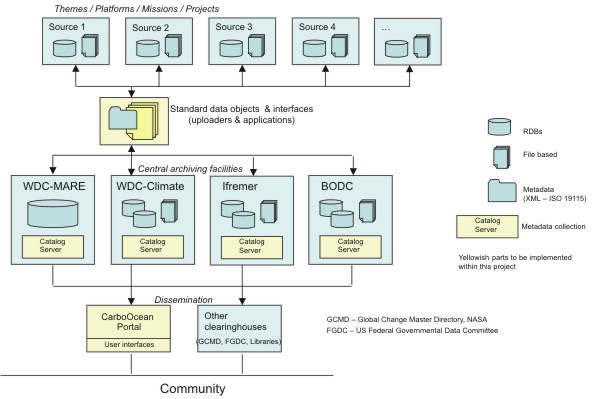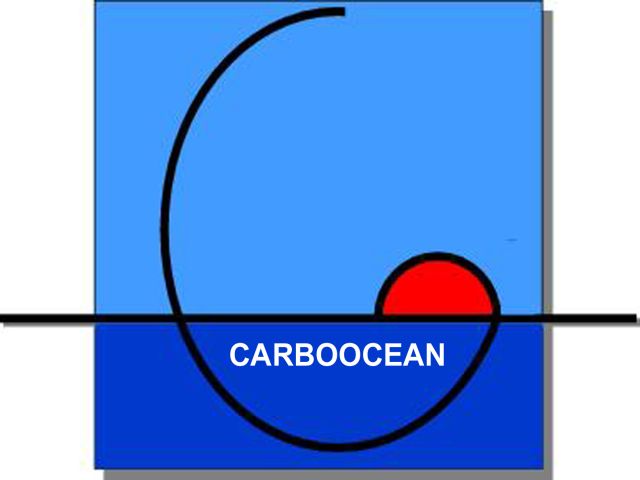CARBOOCEAN data portal
Towards an integrated marine Carbon sources and sinks assessment
Methodology
Diversity of projected data sources in CARBOOCEAN and heterogeneity of data types requires a data management based on a consortium in a networked environment that is open and flexible to new data types and data managing peers. CARBOOCEAN Data and Information Services functions as a distributed networked system and its center includes:
- a portal group comprised of management, technical staff, communications staff and network and computer infrastructure to provide access to the project-wide information and
- a coordination group comprised of representatives from each of the core themes and the portal group.
- Observational and modelling data including historical data
- Actual publication list including citations relevant to CarboOcean
- Applications for visualization and analysis
- Management system for cooperative work (including schedules, mailing list, communication forum and upload space)
- Links to CARBOOCEAN related sites and communities
For capture, archiving, publication, and distribution of all possible types of data and information international standards are adopted (ISO, W3C, OGC).
Core of the information system is a data retrieval and access system based on distributed metadata catalogues located at the cooperating data centers.
Data capture procedures vary from routines that are or can be automated to a high degree (platform or device based data) to routines that are mainly dependant on personal communication between the principal investigators (PIs) and data managers. To facilitate quality check and upload of data into data centers common data formats will be used whenever possible. It is fostered that widespread visualization and analysis tools can be applied to the same formats thus increasing the usability of data and tools. In addition common formats facilitate synthesis of data coming from different data centers.
According to the rules of good scientific practice (ESF 2001) all data sets are longterm archived and published using the ICSU World Data Center or comparable systems. Publication of data in principal is dependant on the decision of the responsible PIs. The adoption and development of standards, organisation of data flow and data structures, the communication between science, data management, and platform/device operators, and evaluation of the overall performance of the information services is coordinated and supervised by the information services coordination group.
